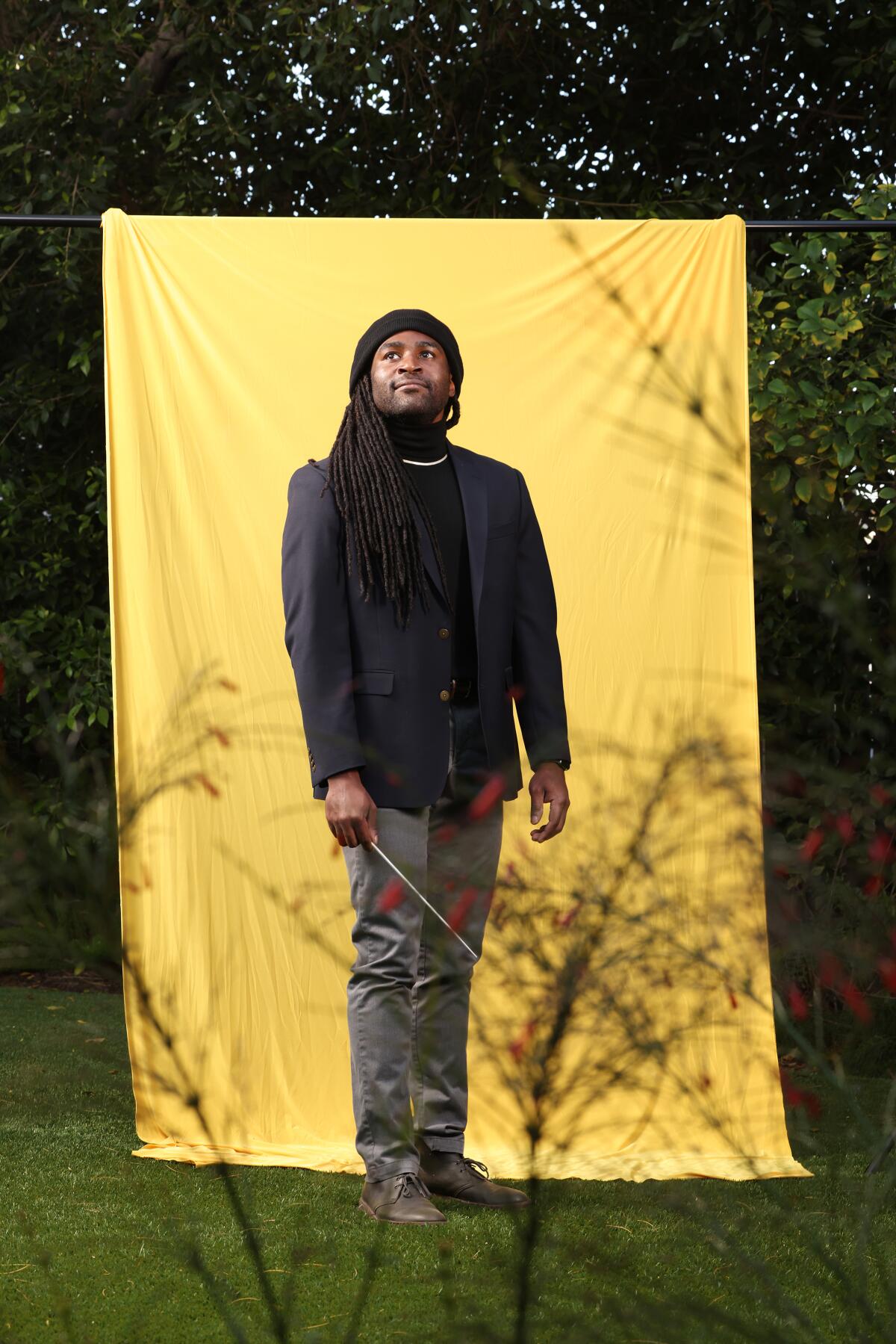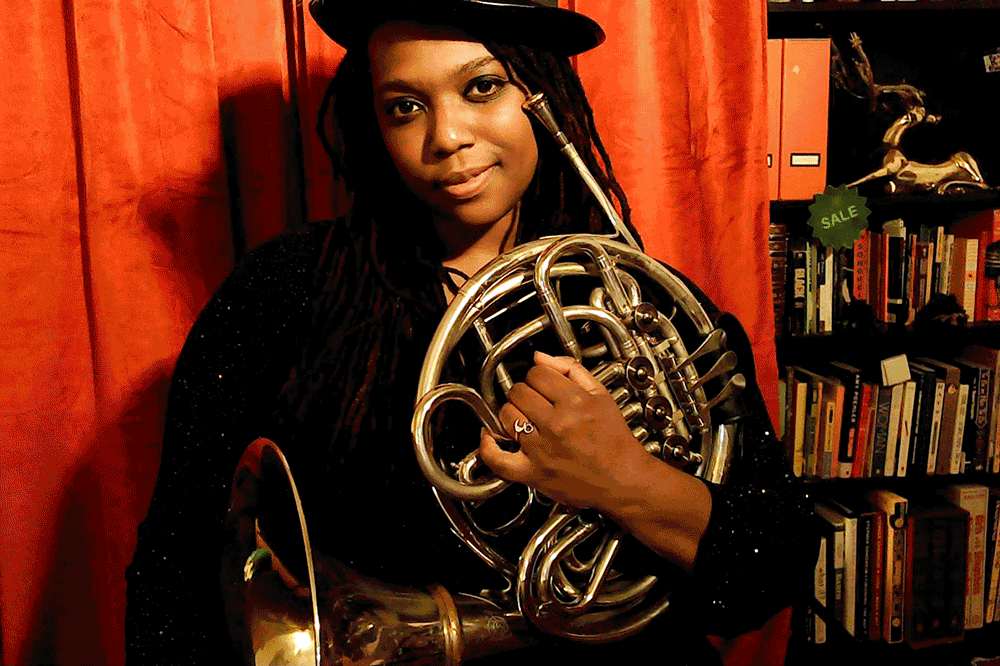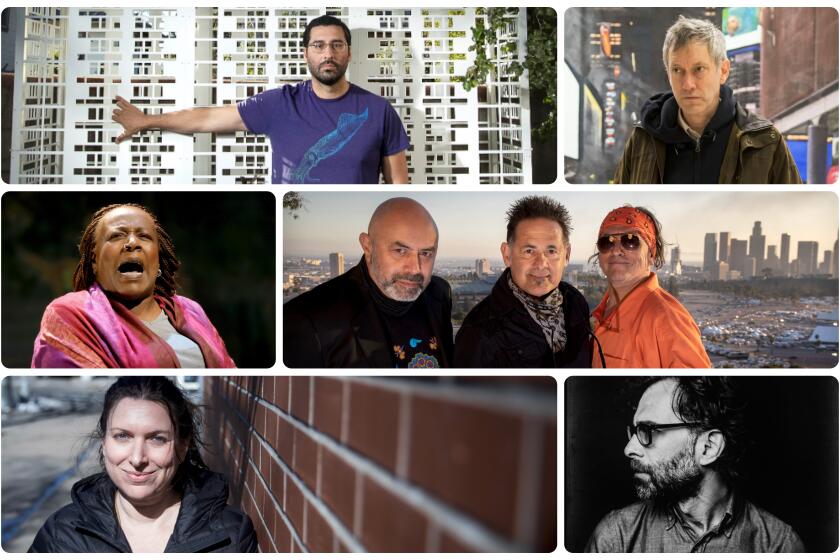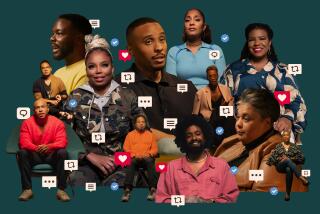Alexander Blake is leading a movement for anti-racism in choral music. Here’s how

He stopped eating and lost 25 pounds in the stress of the pandemic, but Alexander Blake says he’s also seen important positive change. He’s one of 11 musicians from both coasts sharing their stories of struggle, survival and hope.
In 2016 Alexander L. Blake founded Tonality, a choral ensemble that represents diverse cultures and ethnicities in the Los Angeles area and presents concerts with themes of social justice, including immigration and prison reform, climate change, gun violence, homelessness, mental health, LGBTQ rights and Black Lives Matter.
Blake has long been concerned with diversity and inclusion in classical and choral music, but not until 2020 — during a pandemic that disproportionately affected people of color and in the wake of the killings of Ahmaud Arbery and George Floyd — did he find organizations across the country suddenly listening in ways they hadn’t before.
Violinist Melissa Tong landed her dream job playing a Broadway musical. Then the pandemic became the ultimate showstopper. She’s one of 11 classical musicians from both coasts who share their stories of struggle, survival and hope.
When Floyd died at the hands of police, “all the doors I had been screaming at opened all at once,” says Blake, who launched #BlackVoicesMatter, a pledge of anti-racism in choral music that has more than 10,000 signatures from around the world.
Blake quickly became an in-demand speaker, appearing regularly via Zoom on panels, at conferences and at universities across the country. These days he logs at least one of these guest spots every week.
People cried and laughed, and we just talked as a Black community of artists, and it was so needed.
— Alexander Blake, founder of Tonality
“I did not do this work before,” he says, acknowledging that while organizations should have long ago been open to such discussions, progress is finally being made. “It has been really exciting to engage with leaders who have the ability to change the systems in their own environments.”
Together with singer-songwriter Danielle Withers, Blake founded a collective called Black Artists for Black Lives, which consists of more than 70 arrangers, singers, instrumentalists, audio engineers and videographers. In early July the group released a choral video featuring a song by Stevie Wonder and images of Black people killed by police and white vigilantes alongside video of Black Lives Matter protests.
The World Health Organization announced the coronavirus outbreak had become a pandemic on March 11, 2020. Since then, the virus has seemingly touched all aspects of life in Southern California and beyond. The Times looks back on a full year of life in a pandemic.
The day Floyd died, the group held a Zoom call, and “people cried and laughed, and we just talked as a Black community of artists, and it was so needed,” Blake says.
Blake’s activism reached a peak during a time when he, like many creatives in classical music, was making a living playing a variety of roles. He is director of classical choirs at the Los Angeles County High School for the Arts and he serves as a principal associate conductor for the National Children’s Chorus.
He was able to continue the former via Zoom, but he thought he would be among a large portion of children’s chorus staff to be furloughed. He started teaching private sight-reading classes via Zoom and he quickly set up a website. A few days later the children’s chorus decided to focus on sight-reading classes during the pandemic, and Blake found he had a new gig.
As the one-year anniversary of the COVID-19 pandemic arrives, we want to hear from Angelenos in the theater industry about what life has been like since.
He worked with Tonality to plan a virtual season, making space for every member of the group to participate occasionally in order to receive some financial support. The group’s first pandemic performance was about melting glaciers and climate change.
In addition, Blake had two of his compositions published and co-wrote a chapter in the book “Music and Human Rights” (Taylor & Francis/Routledge). He also got his first official vocal contracting gig for film, a longtime goal.
October marked a high point for Blake when he conducted a virtual concert with Tonality at UCLA’s Royce Hall as part of a Kronos Quartet celebration of Pete Seeger. He also was invited to sing backup for a Carrie Underwood Christmas special.
“Ironically, I have never been so financially secure,” says Blake. “I’ve paid off credit cards, I’ve paid off private loans.”
That doesn’t mean the past year has been easy. Blake has struggled with depression relating to his sense of self-worth and struggled through a few painful relationships. He lost 25 pounds because he was too anxious to eat. He is now working through these issues in therapy.
“It’s easy for me to talk about justice and what others need,” he says, “but it is very hard for me to talk about what I need personally.”
Daniel Fish, Culture Clash, Dael Orlandersmith, Richard Maxwell, Annie Dorsen and Lars Jan reveal much loss — but also see a way forward.
More to Read
The biggest entertainment stories
Get our big stories about Hollywood, film, television, music, arts, culture and more right in your inbox as soon as they publish.
You may occasionally receive promotional content from the Los Angeles Times.















